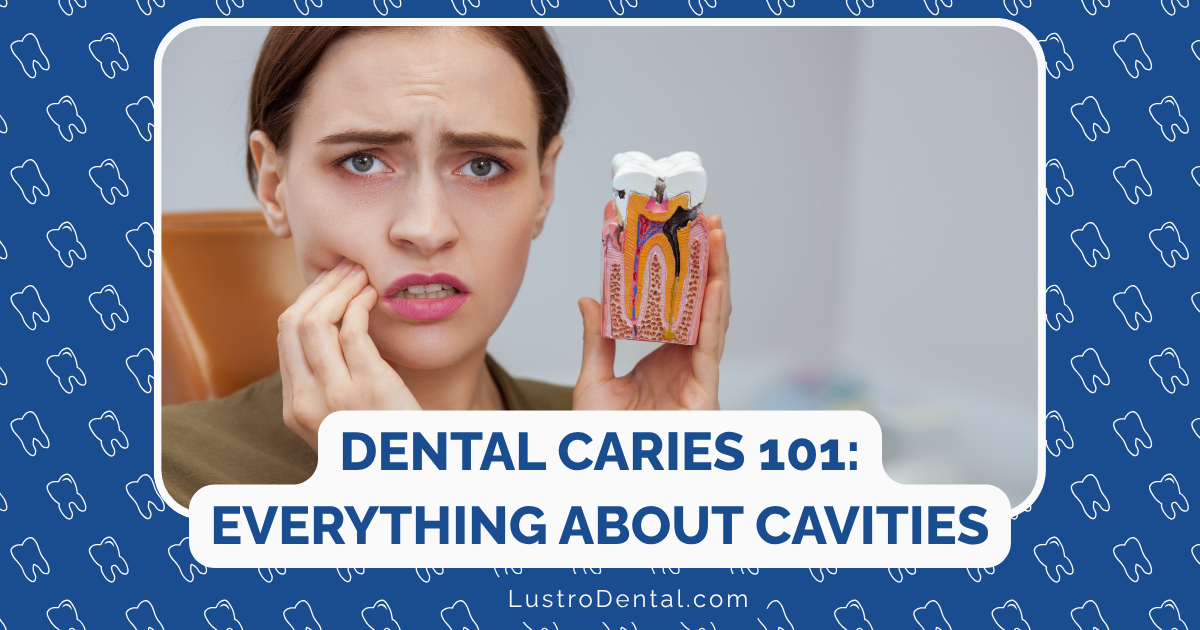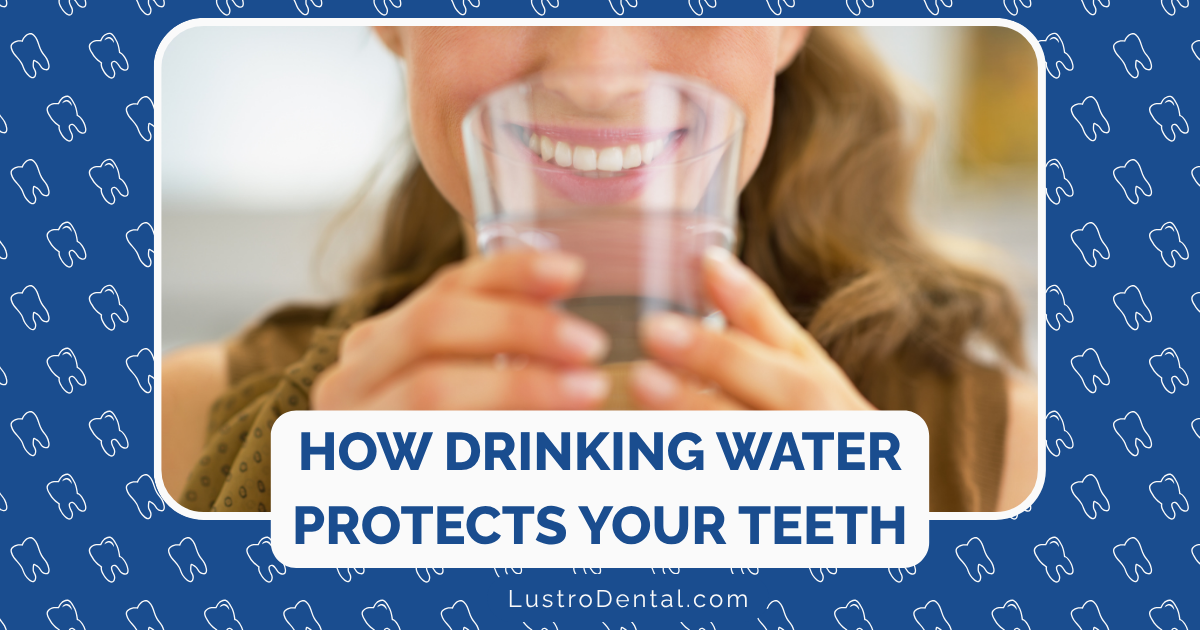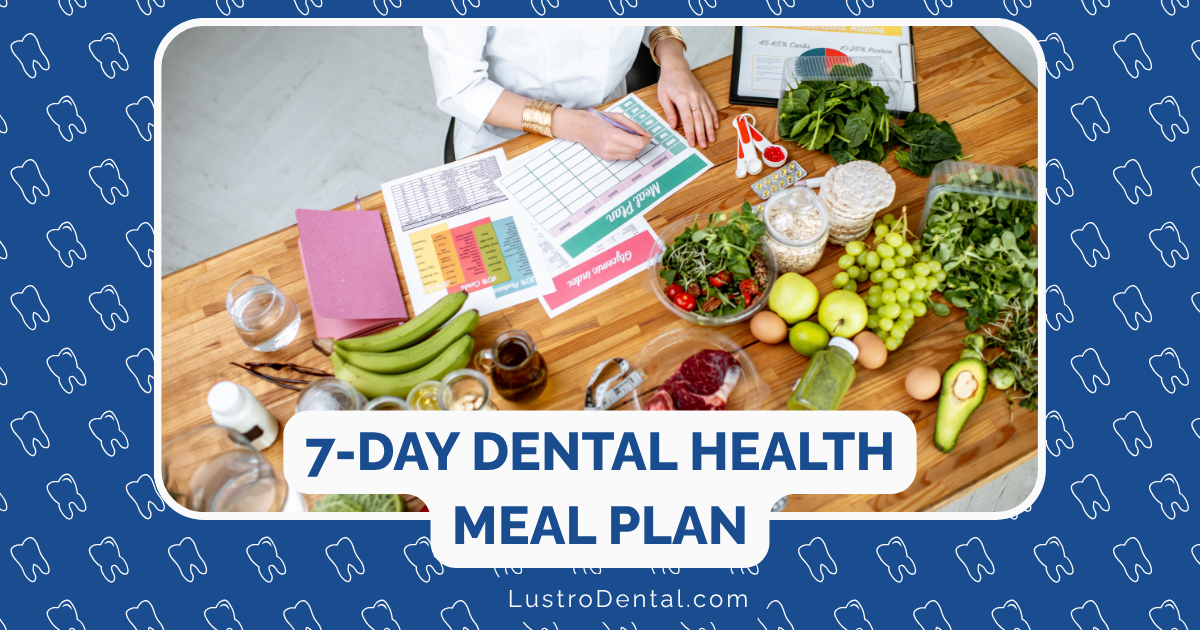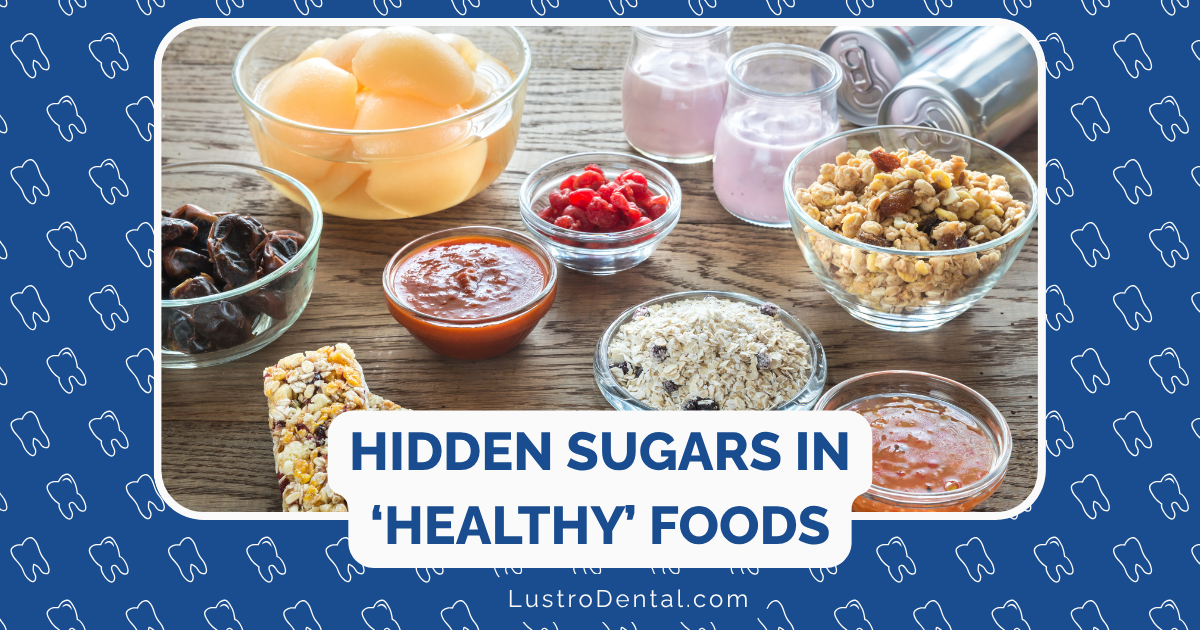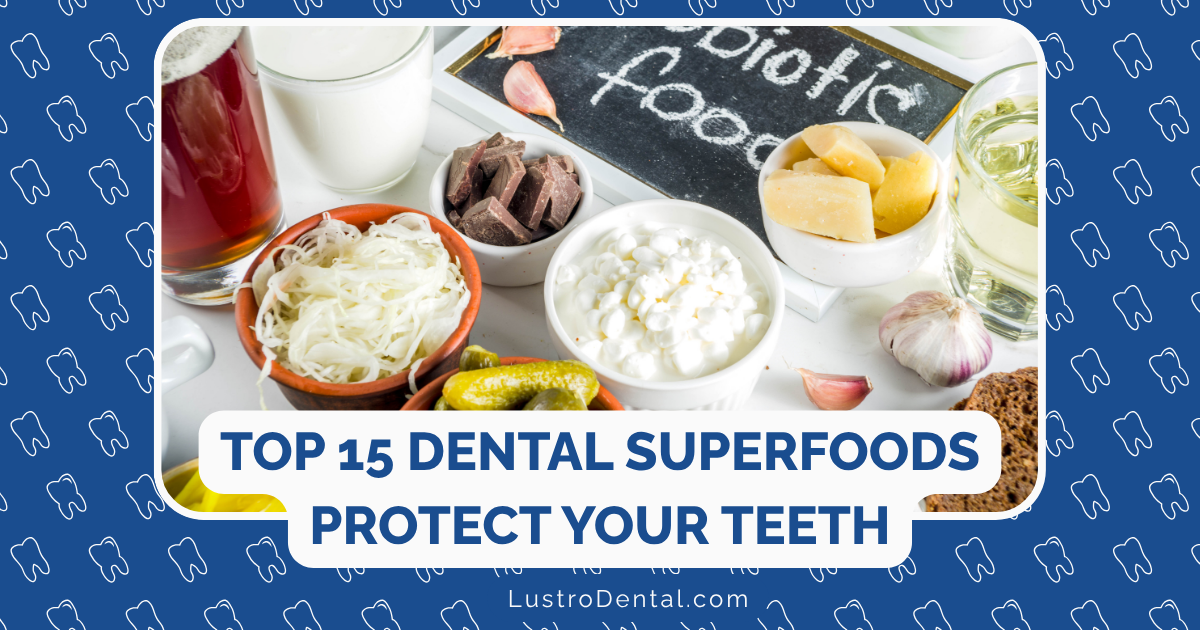Building Healthy Teeth from the Inside Out: Nutrition’s Role in Your Dental Journey
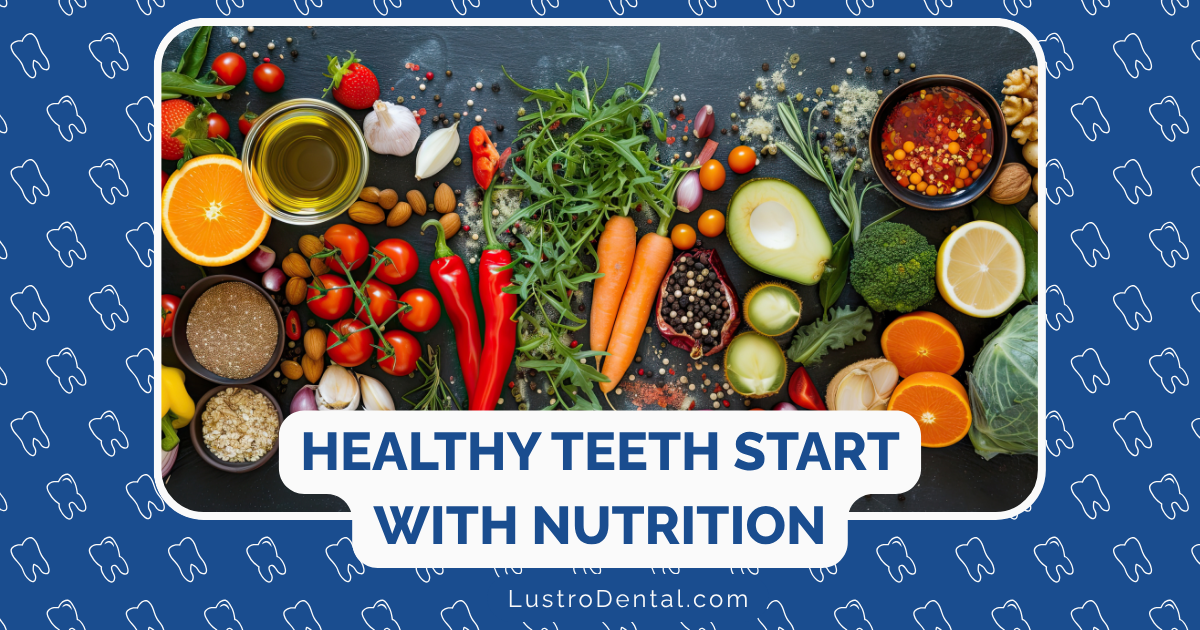
When we think about dental health, brushing, flossing, and regular dental check-ups typically come to mind first. While these practices are undeniably important, there’s another crucial factor that often gets overlooked: nutrition. What you eat doesn’t just affect your waistline or energy levels—it plays a fundamental role in building and maintaining strong, healthy teeth and gums throughout your lifetime.
Your teeth are living structures that continuously interact with the foods and beverages you consume. Every bite you take either contributes to their strength and resilience or challenges their integrity. The good news is that with the right nutritional knowledge, you can harness the power of your diet to support optimal dental health from the inside out.
In this comprehensive guide, we’ll explore the fascinating relationship between nutrition and dental health, uncovering the essential nutrients your teeth need, the foods that deliver them, and practical strategies to incorporate these insights into your daily life for a stronger, healthier smile.
The Living Structure: Understanding Your Teeth
To appreciate how nutrition impacts your dental health, it’s important to understand that teeth are dynamic, living structures—not inert objects.
The Anatomy of a Tooth
Each tooth consists of several distinct layers:
- Enamel: The visible, outermost layer—the hardest substance in your body, composed primarily of hydroxyapatite (a crystalline form of calcium phosphate)
- Dentin: The layer beneath enamel—slightly softer and yellower, containing microscopic tubules that connect to the pulp
- Pulp: The living center of the tooth—contains blood vessels, nerves, and connective tissue that nourish the tooth
- Cementum: A thin layer covering the tooth root—helps anchor the tooth to the surrounding bone
- Periodontal ligament: Connects the tooth to the jawbone—allows for slight movement and shock absorption
The Dynamic Process of Remineralization
Your teeth undergo a continuous process of mineral exchange with your saliva:
- Demineralization: Acids from food, drinks, and bacterial metabolism dissolve minerals from tooth enamel
- Remineralization: Minerals from saliva (primarily calcium and phosphate) are redeposited into enamel
This delicate balance determines whether your teeth strengthen or weaken over time. When demineralization consistently exceeds remineralization, cavities form. Proper nutrition provides the raw materials necessary for effective remineralization.
The Tooth-Body Connection
Your teeth don’t exist in isolation—they’re intimately connected to your overall health:
- Nutrients from your diet circulate through the pulp, nourishing teeth from the inside
- The health of your jawbone, which supports your teeth, depends on adequate nutrition
- Your immune system, which helps fight oral infections, requires proper nourishment
- Saliva composition, critical for remineralization, is affected by your nutritional status
According to research published in the Journal of Dental Research, nutritional deficiencies can compromise these systems, making your teeth more vulnerable to decay and disease—even with perfect oral hygiene.
Essential Minerals for Strong Teeth
Minerals form the structural foundation of your teeth. Ensuring adequate intake of these key minerals is crucial for dental strength and resilience.
Calcium: The Cornerstone of Tooth Structure
Calcium is the most abundant mineral in your teeth, making up approximately 70% of dentin and 95% of enamel in the form of hydroxyapatite crystals.
How calcium supports dental health:
- Provides structural integrity to tooth enamel
- Contributes to remineralization processes
- Supports jaw bone density, which anchors teeth
- Helps neutralize acid in the mouth
Top food sources:
- Dairy products (milk, yogurt, cheese)
- Fortified plant milks (almond, soy, oat)
- Leafy greens (kale, collards, bok choy)
- Canned fish with bones (sardines, salmon)
- Almonds and other nuts
- Tofu (calcium-set)
Research published in the American Journal of Clinical Nutrition shows that calcium intake during childhood and adolescence is particularly crucial, as this is when tooth development and mineralization are most active.
Phosphorus: Calcium’s Essential Partner
Phosphorus works synergistically with calcium to form hydroxyapatite crystals in tooth enamel and dentin.
How phosphorus supports dental health:
- Partners with calcium in tooth mineral structure
- Helps repair microscopic tooth damage
- Supports remineralization processes
- Contributes to saliva’s buffering capacity
Top food sources:
- Protein-rich foods (meat, poultry, fish)
- Dairy products
- Nuts and seeds
- Whole grains
- Legumes
- Eggs
The proper calcium-to-phosphorus ratio is important; research in the Journal of Clinical Periodontology suggests that excessive phosphorus relative to calcium may negatively impact dental health.
Magnesium: The Unsung Mineral Hero
Magnesium plays several critical roles in dental health, though it’s often overlooked.
How magnesium supports dental health:
- Helps regulate calcium and phosphorus deposition in teeth
- Supports protein production for tooth development
- Contributes to bone formation
- Activates vitamin D, which is essential for calcium absorption
Top food sources:
- Dark leafy greens
- Nuts and seeds (especially pumpkin seeds)
- Whole grains
- Legumes
- Avocados
- Dark chocolate
Studies in the Journal of the American Dental Association have found associations between magnesium deficiency and increased dental caries, highlighting its importance for dental health.
Fluoride: Nature’s Cavity Fighter
While controversial in some circles, fluoride’s role in strengthening teeth is well-established in dental research.
How fluoride supports dental health:
- Incorporates into tooth enamel, forming fluorapatite (stronger than hydroxyapatite)
- Makes teeth more resistant to acid attacks
- Enhances remineralization
- Inhibits bacterial metabolism
Top sources:
- Fluoridated water
- Tea (especially black and green)
- Marine fish with bones
- Fluoride toothpaste and dental treatments
- Some mineral waters
The World Health Organization recognizes fluoride as an important public health measure for preventing dental caries, particularly in vulnerable populations.
Trace Minerals: Small Amounts, Big Impact
Several trace minerals contribute to dental health in various ways:
Zinc
- Helps control plaque formation
- Supports immune function in the mouth
- Contributes to cell growth and healing
- Found in: oysters, meat, poultry, beans, nuts
Iron
- Essential for healthy red blood cells that nourish oral tissues
- Supports immune function against oral pathogens
- Found in: red meat, spinach, lentils, fortified cereals
Potassium
- Blocks calcium excretion, helping maintain mineral balance
- Improves bone mineral density
- Found in: bananas, potatoes, avocados, spinach, yogurt
Copper
- Strengthens connective tissues in gums
- Supports immune function
- Found in: shellfish, nuts, seeds, whole grains
Research in Nutrients journal confirms that even mild deficiencies in these trace minerals can impact oral health, making a varied, mineral-rich diet important for comprehensive dental nutrition.
Vital Vitamins for Oral Health
Vitamins play crucial roles in maintaining the health of your teeth and gums, often working alongside minerals for optimal effect.
Vitamin D: The Mineral Maestro
Often called the “sunshine vitamin,” vitamin D is essential for dental health due to its role in mineral metabolism.
How vitamin D supports dental health:
- Enhances calcium and phosphorus absorption in the intestines
- Regulates mineral deposition in tooth structure
- Supports immune function in the oral cavity
- Helps control inflammation in gum tissue
Top sources:
- Sunlight exposure (the body produces vitamin D when skin is exposed to sunlight)
- Fatty fish (salmon, mackerel, tuna)
- Egg yolks
- Fortified foods (milk, plant milks, cereals)
- Cod liver oil
- Mushrooms exposed to UV light
Research published in the Journal of Dental Research shows that vitamin D deficiency is associated with increased risk of dental caries and periodontal disease, making it one of the most important vitamins for oral health.
Vitamin K2: Directing Calcium Where It Belongs
Vitamin K2 works synergistically with vitamin D to ensure proper calcium utilization.
How vitamin K2 supports dental health:
- Activates osteocalcin, a protein that helps bind calcium to tooth structure
- Prevents calcium from depositing in soft tissues where it doesn’t belong
- Supports proper jaw development
- Works with vitamin D for optimal mineral metabolism
Top sources:
- Natto (fermented soybeans)
- Cheese (especially aged varieties)
- Egg yolks
- Organ meats
- Grass-fed butter
- Fermented foods
Studies in the Journal of Nutrition suggest that vitamin K2 may be particularly important for dental arch development in children, potentially influencing the need for orthodontic treatment later in life.
Vitamin C: Guardian of Gum Health
While primarily known for immune support, vitamin C is crucial for maintaining the connective tissues that support your teeth.
How vitamin C supports dental health:
- Essential for collagen production, the main protein in gum tissue
- Strengthens blood vessels in the gums
- Supports immune function against oral pathogens
- Acts as an antioxidant, protecting gum tissue from damage
Top sources:
- Citrus fruits (oranges, grapefruits, lemons)
- Strawberries
- Kiwi
- Bell peppers
- Broccoli
- Brussels sprouts
- Tomatoes
Research in the Journal of Periodontology has established that vitamin C deficiency can lead to bleeding gums, delayed wound healing, and increased susceptibility to periodontal disease.
Vitamin A: Keeper of Oral Tissues
Vitamin A plays multiple roles in maintaining the health of oral tissues.
How vitamin A supports dental health:
- Maintains mucous membranes that line the mouth
- Supports saliva production
- Contributes to proper tooth development
- Supports immune function in oral tissues
Top sources:
- Liver
- Fish oils
- Egg yolks
- Butter
- Orange and yellow vegetables (carrots, sweet potatoes)
- Dark leafy greens
- Red and orange fruits
According to studies in the International Journal of Dental Hygiene, vitamin A deficiency can lead to reduced saliva production and compromised oral mucosal integrity, increasing susceptibility to infections.
B Vitamins: Supporting Oral Tissue Health
The family of B vitamins contributes to oral health in various ways:
Vitamin B12
- Prevents canker sores
- Supports red blood cell formation for healthy gum tissue
- Found in: animal products (meat, fish, dairy, eggs)
Folate (B9)
- Essential for cell division and tissue growth
- Particularly important during pregnancy for fetal tooth development
- Found in: leafy greens, legumes, fortified grains
Niacin (B3)
- Helps convert food to energy for oral tissue maintenance
- Supports cell function in oral tissues
- Found in: meat, fish, peanuts, mushrooms
Riboflavin (B2)
- Contributes to tissue repair
- Helps prevent oral inflammation
- Found in: milk, eggs, enriched grains, almonds
Research in Oral Diseases journal confirms that B vitamin deficiencies can manifest as various oral symptoms, from cracked lips to inflamed tongue and increased susceptibility to oral infections.
The Protein Connection: Building Blocks for Dental Strength
Proteins provide the structural framework for your teeth and the tissues that support them.
Collagen: Foundation of Dental Support Structures
Collagen is the most abundant protein in your body and plays a crucial role in dental health.
How collagen supports dental health:
- Forms the organic matrix of dentin
- Provides structure to the periodontal ligament
- Constitutes the majority of gum tissue
- Supports bone formation in the jaw
Nutrients needed for collagen production:
- Protein (amino acids, especially glycine, proline, and hydroxyproline)
- Vitamin C (essential cofactor for collagen synthesis)
- Copper (cofactor for collagen cross-linking)
- Zinc (supports collagen formation)
Research in the Journal of Periodontology demonstrates that adequate protein intake, along with the necessary cofactors, is essential for maintaining gum tissue integrity and supporting tooth attachment.
Keratin: Protecting the Oral Environment
Keratin is a fibrous protein that contributes to oral health in several ways.
How keratin supports dental health:
- Forms part of the protective barrier in oral mucosa
- Contributes to enamel formation during tooth development
- Helps maintain the structure of salivary glands
- Provides resilience to oral tissues
Nutrients needed for keratin production:
- Protein (particularly sulfur-containing amino acids)
- Vitamin A
- Biotin (vitamin B7)
- Zinc
Studies in Oral Science International show that deficiencies in these nutrients can compromise the integrity of oral tissues, potentially leading to increased vulnerability to infections and trauma.
Protein Quality and Dental Health
The quality of protein in your diet matters for optimal dental nutrition:
- Complete proteins (containing all essential amino acids): Found in animal products, quinoa, and soy
- Complementary proteins (combinations that provide all essential amino acids): Such as rice and beans, or hummus and whole grain pita
- Protein digestibility: Affects how efficiently your body can use dietary protein
Research in the American Journal of Clinical Nutrition suggests that both protein quantity and quality are important for supporting the continuous renewal of oral tissues and the production of protective salivary proteins.
Water: The Unsung Hero of Dental Nutrition
Water plays multiple critical roles in maintaining dental health, yet its importance is often underestimated.
Saliva Production and Function
Adequate hydration is essential for optimal saliva production, and saliva is your mouth’s primary defense system.
How saliva supports dental health:
- Contains calcium, phosphate, and fluoride for remineralization
- Washes away food particles and acids
- Contains antimicrobial compounds that control oral bacteria
- Buffers acids produced by bacteria and acidic foods
- Contains proteins that protect tooth surfaces
Research in the Journal of Dental Research shows that even mild dehydration can significantly reduce saliva flow, compromising these protective functions.
Water as a Cleansing Agent
Unlike other beverages, water cleanses without leaving behind residues that can harm teeth.
Benefits of water for dental cleansing:
- Rinses away food particles without leaving sugar or acid
- Helps dislodge debris from between teeth
- Dilutes acids produced by bacteria
- Can be used for rinsing after meals when brushing isn’t possible
The American Dental Association recommends drinking water after meals and snacks to help reduce the impact of acids and sugars on teeth.
Fluoridated Water: Nature’s Dental Treatment
In many communities, tap water contains fluoride, which provides additional dental benefits.
Benefits of fluoridated water:
- Delivers low-dose, consistent fluoride exposure
- Reaches tooth surfaces regularly throughout the day
- Contributes to saliva’s remineralizing properties
- Particularly beneficial for vulnerable populations with limited access to dental care
According to the Centers for Disease Control and Prevention, community water fluoridation is one of the most cost-effective public health interventions, reducing dental caries by approximately 25% in children and adults.
Hydration Strategies for Dental Health
To maximize water’s benefits for your teeth:
- Aim for 8-10 glasses of water daily
- Choose water as your primary beverage
- Keep water accessible throughout the day
- Consider a reusable water bottle to encourage consistent hydration
- Drink water after meals and snacks
- If you dislike plain water, try infusing it with fresh fruits or herbs (avoiding citrus if you have enamel concerns)
Studies in Community Dentistry and Oral Epidemiology confirm that simply increasing water consumption, particularly in place of sugary beverages, can significantly reduce the risk of dental caries.
The Oral Microbiome: Feeding Your Dental Defenders
Your mouth is home to a complex ecosystem of microorganisms—the oral microbiome—that significantly impacts your dental health. What you eat influences which bacteria thrive in this environment.
Understanding the Oral Microbiome
The oral microbiome consists of hundreds of species of bacteria, fungi, viruses, and other microorganisms living in a delicate balance.
- In a healthy mouth, beneficial bacteria help control potentially harmful species
- Certain bacteria produce compounds that protect teeth and gums
- Others help regulate pH and contribute to remineralization
- Some produce antimicrobial substances that target pathogens
Research published in the Journal of Oral Microbiology shows that a diverse, balanced oral microbiome is associated with better dental health outcomes.
Foods That Support Beneficial Bacteria
Certain dietary choices can promote the growth of beneficial oral bacteria:
Fiber-Rich Foods
- Create a mechanical cleaning effect
- Stimulate saliva production
- Provide complex carbohydrates that beneficial bacteria can utilize
- Examples: crunchy vegetables, apples, whole grains
Polyphenol-Rich Foods
- Contain compounds that inhibit harmful bacteria while supporting beneficial ones
- Include: green tea, dark chocolate, berries, red wine (in moderation)
Prebiotics
- Provide specific nutrients that feed beneficial bacteria
- Include: onions, garlic, leeks, asparagus, bananas
Xylitol-Containing Foods
- Natural sweetener that inhibits growth of cavity-causing bacteria
- Found in some fruits and vegetables
- Available in gums, mints, and other products
Studies in the Journal of Dental Research demonstrate that regular consumption of these foods can shift the oral microbiome toward a healthier balance, potentially reducing the risk of cavities and gum disease.
Probiotics for Dental Health
Probiotics—beneficial live microorganisms—can help support a healthy oral microbiome.
How oral probiotics support dental health:
- Compete with harmful bacteria for space and resources
- Produce antimicrobial compounds that target pathogens
- Help regulate local immune response
- Create an environment less favorable for cavity-causing bacteria
ProDentim: Targeted Oral Probiotic Support
ProDentim represents an innovative approach to dental health through microbiome support. Each tablet contains 3.5 billion CFUs (colony-forming units) of beneficial bacteria specifically selected for oral health:
- Lactobacillus paracasei: Helps inhibit the growth of cavity-causing bacteria
- Lactobacillus reuteri: Produces antimicrobial compounds that target harmful bacteria
- Bifidobacterium lactis BL-04: Supports immune function in the oral cavity and helps maintain microbial balance
The formula also includes supporting ingredients:
- Inulin: A prebiotic fiber that selectively feeds beneficial bacteria
- Tricalcium phosphate: Provides calcium and phosphorus for remineralization
- Peppermint: Natural flavor with additional antimicrobial properties
Clinical research on ProDentim has shown promising results for supporting overall oral health, including:
- Reduced plaque formation
- Improved gum health
- Better breath freshness
- Support for the remineralization process
By incorporating ProDentim into your daily routine, you can actively support your oral microbiome, complementing the benefits of a nutrient-rich diet for comprehensive dental health.
Fermented Foods: Traditional Microbiome Support
Fermented foods have been part of traditional diets for centuries and offer natural probiotic benefits:
- Yogurt: Contains beneficial Lactobacillus species
- Kefir: Provides diverse probiotic strains
- Kimchi and sauerkraut: Offer plant-based probiotic options
- Kombucha: Fermented tea with potential oral health benefits (consume in moderation due to acidity)
Research in the Journal of Applied Oral Science suggests that regular consumption of fermented foods may contribute to a healthier oral microbiome, potentially reducing the risk of dental caries and periodontal disease.
Foods That Harm: What to Limit for Dental Health
While many foods support dental health, others can undermine it. Understanding these potential threats helps you make informed choices.
Sugar: The Primary Dental Antagonist
Sugar has a well-established negative impact on dental health.
How sugar harms teeth:
- Feeds acid-producing bacteria, particularly Streptococcus mutans
- Lowers pH in the mouth, creating an acidic environment
- Disrupts the mineral balance, promoting demineralization
- Creates sticky biofilms that adhere to teeth
Hidden sources of sugar:
- Processed foods
- Condiments (ketchup, barbecue sauce)
- Flavored yogurts
- Granola and energy bars
- Dried fruits
- Fruit juices and smoothies
- Sports and energy drinks
Research in Caries Research confirms that it’s not just the amount of sugar consumed but the frequency and duration of exposure that most significantly impacts dental health.
Acidic Foods and Beverages
Acids directly erode tooth enamel, bypassing the bacterial process.
High-acid items to limit:
- Citrus fruits and juices
- Carbonated beverages (including diet versions)
- Sports and energy drinks
- Wine (particularly white)
- Vinegar-based dressings and sauces
- Some berries (cranberries, blackberries)
Strategies to minimize acid damage:
- Consume acidic foods as part of meals rather than alone
- Use a straw for acidic beverages
- Rinse with water afterward
- Wait 30-60 minutes before brushing (to avoid brushing softened enamel)
- Consider a neutralizing rinse after acid exposure
Studies in the Journal of Dentistry show that repeated exposure to dietary acids is a major factor in enamel erosion, which can lead to sensitivity, discoloration, and increased vulnerability to decay.
Sticky and Processed Carbohydrates
Refined carbohydrates pose particular challenges to dental health.
Problematic carbohydrates:
- White bread and crackers (become sticky in the mouth)
- Potato chips (stick to teeth and contain simple starches)
- Candy, especially chewy or hard varieties
- Cookies and pastries
- Refined cereals
Why they’re problematic:
- Convert rapidly to simple sugars in the mouth
- Often stick to teeth, prolonging exposure
- Typically lack protective nutrients found in whole foods
- Often consumed as snacks, increasing frequency of exposure
Research in the European Journal of Oral Sciences demonstrates that highly processed carbohydrates can be almost as damaging to teeth as sugar, particularly when consumed frequently between meals.
Alcohol: Impact on Dental Nutrition
Alcohol consumption can affect dental health through several mechanisms:
- Reduces saliva production, decreasing natural protective mechanisms
- Often contains sugar or acids
- May lead to dehydration, further reducing saliva flow
- Can interfere with nutrient absorption, particularly B vitamins
- Associated with increased risk of oral cancer
Studies in the Journal of Periodontology suggest that moderate to heavy alcohol consumption is associated with increased risk of periodontal disease, potentially through both direct effects on oral tissues and indirect effects on nutrition status.
Balancing Enjoyment and Dental Health
Rather than complete elimination, consider these balanced approaches:
- Enjoy potentially harmful foods as part of meals rather than snacks
- Choose the highest quality versions of treats (e.g., dark chocolate instead of milk chocolate)
- Rinse with water after consuming problematic foods
- Consider timing—consuming treats followed by foods that support dental health
- Practice mindful eating to increase satisfaction from smaller portions
The American Academy of Pediatric Dentistry emphasizes that teaching balanced approaches to potentially harmful foods is more sustainable than strict prohibition, particularly for children and adolescents.
Nutritional Strategies Across the Lifespan
Nutritional needs for dental health evolve throughout life, requiring tailored approaches for different age groups.
Pregnancy: Building the Foundation
Dental development begins in utero, making maternal nutrition crucial.
Key nutrients during pregnancy:
- Calcium and phosphorus: For tooth mineralization
- Vitamin D: For calcium absorption and utilization
- Vitamin A: For proper tooth development
- Folate: For cell division and tissue development
- Protein: For structural development
Research in the Journal of Dental Research shows that maternal nutrition during pregnancy can influence the child’s dental health for years to come, affecting everything from enamel quality to jaw development.
Infancy and Early Childhood: Critical Development
The first years of life represent a critical period for dental development.
Nutritional considerations for infants and toddlers:
- Breastfeeding provides ideal nutrition for early dental development
- Avoid putting babies to bed with bottles containing anything but water
- Introduce a variety of nutrient-dense foods during weaning
- Limit juice and sweetened beverages
- Establish healthy eating patterns early
Studies in Pediatric Dentistry confirm that early nutritional habits significantly impact both primary and permanent dentition, with effects lasting throughout life.
School-Age Children: Building Strong Teeth
During the school years, permanent teeth are erupting and mineralizing.
Nutritional priorities for school-age children:
- Calcium-rich foods for developing teeth
- Vitamin D to support calcium utilization
- Phosphorus for tooth mineralization
- Vitamin C for gum health
- Limited exposure to sugary snacks and beverages
The American Academy of Pediatrics recommends focusing on nutrient-dense whole foods during this critical period, as dietary patterns established in childhood often persist into adulthood.
Adolescence: Supporting Dental Health During Rapid Growth
Adolescence brings unique challenges to dental nutrition.
Considerations for teens:
- Increased calcium needs during growth spurts
- Higher vitamin D requirements for bone and tooth development
- Protein needs for tissue development
- Strategies to address increased consumption of potentially harmful foods
- Nutrition support during orthodontic treatment
Research in the International Journal of Paediatric Dentistry highlights the importance of adequate nutrition during adolescence, when rapid growth and increased independence can sometimes lead to nutritional gaps affecting dental health.
Adulthood: Maintenance and Prevention
During adulthood, nutrition focuses on maintaining dental health and preventing decline.
Adult nutritional strategies:
- Balanced intake of essential vitamins and minerals
- Adequate protein for tissue maintenance
- Hydration for optimal saliva production
- Microbiome support through diverse, plant-rich diet
- Strategic use of supplements when needed
Studies in the Journal of the American Dental Association demonstrate that maintaining optimal nutrition throughout adulthood can significantly reduce the risk of tooth loss and periodontal disease with age.
Older Adults: Addressing Changing Needs
Aging brings specific challenges to dental nutrition.
Considerations for older adults:
- Addressing reduced appetite and altered taste perception
- Compensating for potential nutrient absorption issues
- Managing medication effects on saliva production
- Adapting food choices for dental appliances or missing teeth
- Preventing nutrient deficiencies common in this age group
Research in Gerodontology shows that targeted nutritional interventions can significantly improve oral health outcomes in older adults, contributing to better quality of life and overall health.
Supplements and Specialized Products for Dental Nutrition
While whole foods should form the foundation of dental nutrition, supplements and specialized products can play supporting roles.
When to Consider Supplements
Supplements may be beneficial in specific circumstances:
- Documented nutrient deficiencies
- Restricted diets (vegan, allergies, medical conditions)
- Life stages with increased requirements (pregnancy, growth periods)
- Geographic areas with nutrient-poor soils
- Conditions affecting nutrient absorption
- Medication interactions affecting nutrient status
The Academy of Nutrition and Dietetics recommends a “food first” approach, with supplements used strategically to address specific needs rather than as a primary nutrition source.
Evidence-Based Dental Supplements
Calcium and Vitamin D
- Often combined for optimal absorption
- Particularly important for those with limited dairy intake
- Various forms available, with calcium citrate typically better absorbed
- Look for third-party tested products
Vitamin K2
- Often overlooked but crucial for calcium utilization
- MK-7 form has longer half-life in the body
- Consider combined supplements with D3 and K2 for synergistic effects
Omega-3 Fatty Acids
- Support gum health through anti-inflammatory effects
- Look for products tested for heavy metals and oxidation
- Higher doses may be beneficial for active periodontal disease
Coenzyme Q10
- May support gum healing and reduce inflammation
- Particularly relevant for those on statin medications
- Ubiquinol form typically better absorbed, especially in older adults
Research in the Journal of Evidence-Based Dental Practice suggests that targeted supplementation can be beneficial for dental health, particularly when addressing specific deficiencies or supporting treatment for oral conditions.
ProDentim: Comprehensive Oral Microbiome Support
As discussed earlier, ProDentim offers a specialized approach to dental nutrition through microbiome support. Its unique formulation addresses multiple aspects of dental health:
- Probiotic support: 3.5 billion CFUs of beneficial bacteria specifically selected for oral health
- Prebiotic nourishment: Inulin to feed beneficial bacteria
- Remineralization support: Tricalcium phosphate providing calcium and phosphorus
- Convenient delivery: Easy-to-use tablet form that allows direct contact with oral tissues
For those looking to complement their nutritional approach to dental health, ProDentim provides targeted support for the oral microbiome—an increasingly recognized factor in long-term dental wellness.
Specialized Nutrition Products for Dental Health
Several other specialized products target dental nutrition:
Remineralizing Agents
- Contain bioavailable calcium and phosphate
- May include additional minerals like zinc or strontium
- Available as toothpastes, gels, or rinses
- Work best when used consistently over time
Xylitol Products
- Natural sweetener that inhibits harmful bacteria
- Available as gums, mints, lozenges, and additives
- Most effective when used multiple times daily
- Look for products with xylitol as the first ingredient
Specialized Beverages
- Alkaline waters may help neutralize acids
- Green tea provides polyphenols that support oral health
- Some products are fortified with minerals specifically for dental health
Studies in Caries Research suggest that these specialized products can be valuable additions to a comprehensive dental nutrition plan, particularly for individuals with higher risk factors for dental disease.
Practical Meal Planning for Optimal Dental Health
Translating nutritional knowledge into daily eating patterns is the key to sustainable dental health benefits.
Balanced Meals for Dental Nutrition
The ideal meal pattern for dental health includes:
Breakfast Ideas
- Greek yogurt with berries and nuts (calcium, protein, antioxidants)
- Eggs with spinach and whole grain toast (protein, vitamins, minerals)
- Oatmeal with milk, chia seeds, and apple slices (fiber, calcium, crunch factor)
Lunch Options
- Salmon salad with leafy greens and quinoa (omega-3s, calcium, protein)
- Lentil soup with vegetables and a side of cheese (protein, fiber, calcium)
- Turkey and avocado wrap with crunchy vegetables (protein, healthy fats, mechanical cleaning)
Dinner Suggestions
- Baked fish with roasted vegetables and brown rice (complete protein, minerals, fiber)
- Chicken stir-fry with broccoli, bell peppers, and cashews (protein, vitamin C, crunch)
- Bean and vegetable stew with a side salad (plant protein, fiber, varied nutrients)
Smart Snacking
- Apple slices with cheese (cleaning effect, calcium)
- Nuts and seeds (minerals, protein, healthy fats)
- Crunchy vegetables with hummus (mechanical cleaning, plant protein)
- Plain yogurt with a drizzle of honey (probiotics, calcium)
Research in the Journal of the Academy of Nutrition and Dietetics confirms that consistent consumption of balanced meals containing these components is associated with better dental health outcomes compared to irregular eating patterns or highly processed diets.
Strategic Meal Sequencing
The order in which you consume foods can impact their effect on dental health:
- Begin meals with raw vegetables to stimulate saliva flow
- Consider cheese or nuts before acidic foods to help neutralize acids
- End meals with alkaline foods or water to restore pH balance
- If consuming sweets, do so as part of a meal rather than as standalone snacks
Studies in the European Journal of Oral Sciences suggest that these strategic approaches can significantly reduce the negative impacts of potentially harmful foods when they are consumed.
Meal Planning for Special Circumstances
For Dry Mouth
- Incorporate moist foods with natural juices
- Include foods that require chewing to stimulate saliva
- Consider more frequent, smaller meals
- Ensure adequate hydration throughout the day
During Dental Treatment
- Emphasize soft, nutrient-dense foods that don’t require vigorous chewing
- Focus on anti-inflammatory foods to support healing
- Ensure adequate protein for tissue repair
- Consider room-temperature foods if experiencing sensitivity
For Orthodontic Appliances
- Choose foods that won’t damage braces or aligners
- Cut fruits and vegetables into smaller pieces
- Emphasize soft proteins like eggs, fish, and ground meats
- Consider nutrient-dense smoothies for days when chewing is difficult
The American Association of Orthodontists provides specific nutritional guidance for patients with various orthodontic appliances, emphasizing the importance of maintaining optimal nutrition despite temporary dietary restrictions.
Practical Implementation Tips
Making dental nutrition a sustainable part of your lifestyle:
- Gradual changes: Focus on adding beneficial foods before eliminating favorites
- Preparation strategies: Wash and cut vegetables in advance for easy snacking
- Strategic shopping: Keep a consistent supply of dental-friendly foods
- Family involvement: Make healthy choices a family affair rather than an individual burden
- Mindful eating: Pay attention to the texture, flavor, and experience of eating
According to the Academy of Nutrition and Dietetics, these practical approaches are more likely to result in sustainable dietary changes than strict elimination diets or complicated meal plans.
Conclusion: Nourishing Your Smile for Life
The connection between nutrition and dental health represents one of the most powerful yet underutilized approaches to maintaining healthy teeth and smile throughout life. By understanding how the foods and beverages you consume interact with your teeth, gums, and oral microbiome, you gain the ability to make informed choices that support your dental health from the inside out.
The key insights from this exploration of dental nutrition include:
- Teeth are living structures that continuously interact with their environment, requiring ongoing nutritional support
- Multiple nutrients work together to build and maintain dental health, with no single “magic bullet” solution
- The oral microbiome plays a crucial role in determining whether your diet supports or undermines dental health
- Nutritional needs evolve throughout life, requiring adaptations for different life stages and circumstances
- A comprehensive approach combining nutrient-rich foods, strategic meal planning, and targeted supplements like ProDentim offers the most effective support for long-term dental health
By implementing the evidence-based strategies outlined in this guide, you can harness the power of nutrition to strengthen your teeth, support your gums, and create an oral environment that naturally resists decay and disease. This investment in nutritional support for your dental health pays dividends not just in a more attractive smile, but in reduced dental problems, lower treatment costs, and better overall health throughout your lifetime.
Remember that small, consistent choices add up to significant benefits over time. Every nutrient-rich meal, smart snack choice, and supportive supplement contributes to the ongoing process of building and maintaining your dental health from the inside out.
Have you noticed improvements in your dental health after making nutritional changes? Share your experience in the comments below!


